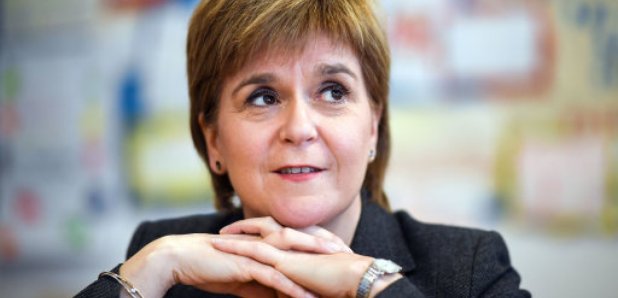No-deal Brexit could spark recession lasting to 2020, economists warn
17 April 2019, 07:25

Economists have predicted the impact of a no-deal Brexit could cause a "significant contraction" in the Scottish economy.
The Fraser of Allander Institute modelled several possible Brexit outcomes and the impact in its latest economic commentary.
The research institute's worst-case scenario was a no-deal Brexit with no policy response, which it predicted would cause an overall economic downturn of -2.1% in 2019.
This predicts a "significant contraction" in the Scottish economy in the second half of 2019 of around 5.5%.
In this scenario, the economy could shrink by 1.5% in 2020 before returning to positive growth of 1.4% by the following year.
However, the institute warns that this model assumes no policy response from the Government or Bank of England, which it said is "not very realistic".
A second scenario examines a no-deal Brexit with a policy response, which predicts a contraction of 1.9%, leading to -0.2% growth in 2019, followed by -0.3% in 2020 and 1.3% in 2021.
The central forecast, based on an orderly departure from the EU in 2019, predicts 1.1% growth this year, 1.4% in 2020 and 1.5% in 2021.
A fourth model envisages business investment being unlocked, perhaps through a deal being agreed, and forecasts growth of 1.7% in 2019, 1.8% in 2020 and 1.6% in 2021.
The report indicates economic growth has remained steady over the course of 2018, with employment at a near record high and unemployment at a record low.
However, economists said earnings and productivity growth remain weak which presents challenges for Scotland's long-term growth prospects.
Professor Graeme Roy, director of the Fraser of Allander Institute, said: "Last week's announcement to move the deadline for the UK's departure from the EU to October has helped to reduce the imminent threat of a no-deal outcome impacting upon the Scottish economy.
"However, it has only kicked the can down the road with little evidence so far of UK policymakers being able to agree a compromise approach.
"The risks to the economy therefore remain high.
"Moreover the nature of the UK's withdrawal from the EU is but one step in the process - the negotiations on the terms of the UK's future relationship with the EU have yet to begin in earnest.
"But Brexit should not be the only focus of attention. One consequence of the Brexit debate is that it has left little room for discussion of the emerging structural challenges and opportunities our economy is facing."






















